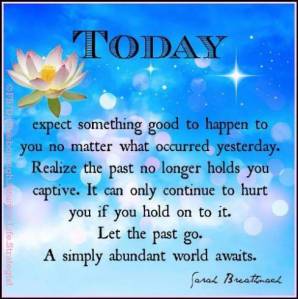
Free Lunch In Freetown!
“What man is a man who does not make the world better? Borrowed from its place in the Ridley Scott movie and moved to a real world scenario presents a different breed of cat isn’t it? From the get-go, I always wanted to do something that would change the world for the better. I started with the usual stuff a little girl would do. Sew daddy’s sock when it got torn, cook for my dolls (although it took a while to understand that dolls don’t eat), help mummy make dinner, braid my sister’s hair, and do the odd knit job here and there. As time went by, I tried to be more engaging with people around me and really believed that singing softly erased the pain and sadness people felt. As things got more realistic, various factors affecting the world as a whole or in bits became glaring and I slowly inevitably came to terms. The world is difficult because many things present or absent make it so, thus one wishing to change the world must engage these factors in a capacity that is determined by one’s scope and ultimately, put a foot forward following the resources one can employ. My origins are in West Africa’s Nigeria. A country besot with wasted opportunities from ill managed resources that have left most of the population illiterate, poor, living with poor health facilities and almost no hope. To put it more bluntly, Nigeria has taken over from India the unenviable spot of being the country with largest number of extremely poor people.
“By the end of 2018, in Africa as a whole, there will probably be about 3.2 million more people living in extreme poverty than there is today.” – Premium Times
The objective of reducing poverty is large, even if I were to focus solely on Nigeria. So I aim to get my dream started through a pilot-run in a small corner of the vast country and further break down my focus to a critical part of the population, the women! The African home is fed by the woman. If you were to analyze from a micro view-point, you would find the African woman ingeniously managing her very scarce resources to feed her very vast family. This isn’t an easy feat by any means as she has to add whatever she can squeeze out of her farm to the tiny allowance given her by her husband. Therefore, enabling the Nigerian woman take the lead in growing their food and having basic technological knowledge to process same food for sale or consumption is a good milestone in the eradication of hunger in my opinion. In other to do this, a small machine that can transform maize seeds to fine grains, convert palm kernel to palm oil for cooking, or transform cassava tubers to ground powder for meals would be a great addition and upgrade to the pre-historic hoe and cutlass that have accompanied her to the farm for centuries. The pilot-run would then be graduated as key learning points are taken into consideration and necessary improvements made to the machine, its procedures or any other point of interest.
Perhaps I am overly optimistic and believe that solving gargantuan problems chewing at the heels of global organizations like the WHO and World Bank is a walk in the park but there is a Chinese saying that goes:
“If you want happiness for an hour, take a nap. If you want happiness for a day, go fishing. If you want happiness for a year, inherit a fortune. If you want happiness for a lifetime, help somebody.”
So I intend to sit with some smart creative individuals from some very tech-inclined companies and bring to life, my idea of a mini versioned, semi-automatic food processing machine that would transform lots of women in the rural areas from small scale farmers to semi-skilled/skilled agro producers. Then support this dash with a training academy that would run workshops to teach them to use the machines, teach them the products to markets chain, and transform their lives. In some way, this would give them a little education and saleable skill. Technology has a way of actively solving problems and partnering with tech firms in the right way would move mountains As many as 10 million women in the villages of Africa are thought to be ‘digitally illiterate’ and have little access to technology.
“Despite the promises of the digital revolution, rural women still don’t have the same access and control of information and communication technologies as men,” says Sophie Treinen, FAO information and knowledge management officer
My journey towards realizing this dream however starts with critical support like that which I seek from TOPTAL. There’s a lot of ground to cover when moving this dream from inside one’s mind and planting it in a village in Ohuhu community. There’s a lot to learn too! And to cover this ground effectively, I need that professional “hand-hold” and guidance from the best at Toptal. To be able to present a clear and concise picture to any innovative design team, I must learn to communicate in a crystal clear and explicit way. To be able to relate a concept to its creative team, I should be able to to describe in detail and with confidence, it’s structure. This skill upgrades and deepenings are what I look onto my Toptal mentor for. The awesome opportunity of their professional mentorship coupled with the Imperial College MBA’s innovation inclined modules begins to forge the academic structure I will employ to drive this goal amongst others.
The opportunities to realize my dreams greatly depend on securing this scholarship from TOPTAL and I would be very grateful to be considered as it would provide me with tremendous support as I strive to deliver realistic value from my dreams and life goals. I strongly strive to make the world around me a better place as I go along and have my sights on the reduction of hunger and poverty across the globe. The benefits of Toptal’s scholarship are as immeasurable as they are priceless! In the words of the great Nelson Mandela –“It seems impossible, until its done.”





